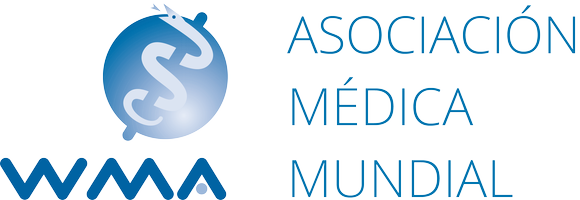ICRC-Eshaya-Chauvin-Oct2013
Copiar PDF
W.M.A
Fortaleza October 2013
Bruce Eshaya-Chauvin
Medical Advisor
Health Care in Danger Project.
beshayachauvin@icrc.org
The MOU
• Medical ethics will constitute the major area of
cooperation between the ICRC and WMA.
• At the national level, the project encourages
initiatives from national medical associations to
raise the HCiD issue.
• The ICRC commits to promote, where
appropriate, interaction between national medical
associations and its delegations as well as with
the Red Cross and Red Crescent national
societies.
Violence against patients and health-care workers
is one of the most crucial yet overlooked
humanitarian issues today. The Red Cross and
Red Crescent Movement runs a project aiming to
improve security and delivery of impartial and
efficient health care in armed conflict and other
emergencies!
Health care in danger
A matter of life & death
Health care in danger: the issue
Violence affecting directly:
• Patients : wounded and sick;
• Medical and health-personnel;
• Transports : ambulances
• Infrastructures : hospital, clinic,
first aid post
It concerns everyone:
Public Services and Private Sector
RC/RC movement
NGOs
2012 Study
Violent incident affecting Health Care
in 22 countries
Health Care in Danger: The Project
2011
RCRC International Conference
2012-2014
Thematic expert workshops
2014
Consultation with States and key
stakeholders
2015
RCRC International Conference
Implementing preventive measures
National Authorities
Local stakeholders
ICRC delegations
National Societies
RC/RC
Encouraging concrete measures
Communication campaign
Consultations
Issues for global consultations Location
1. Military practice: from training to operational orders Sydney
(December 2013)
2. National Societies’ response to HCiD (PNS and
ONS)
Oslo
(December 2012)
Teheran
(February 2013)
3. Ambulances and pre-hospital services Mexico
(May 2013)
4. Responsibilities and rights of health-care personnel London
(April 2012)
Cairo
(December 2012)
5. The physical safety of health facilities Pretoria
(April 2014)
Ottawa
(September 2013)
6. National legislation and penal repression Brussels
(January 2014)
7. Civil society: mobilizing opinion & religious leaders Dakar
(April 2013)
Focus in 4 areas, namely:
Military Operational Practice
Consultations
Search operations in health-care facilities
Fighting in proximity of medical infrastructure: precautions in the attack and defense at either the
planning or conduct of operations stages, in order to avoid or minimize potential dangers medical
workers, vehicles and facilities
Use of the protective emblems by health-care workers, medical vehicles and health-care facilities
Ground evacuation of wounded and sick across territory controlled by different parties to a conflict
(including the issue of checkpoints)
• Integrate victims of armed conflicts and
other emergencies into national scheme
ensuring access to health.
• Contextual definition of Health care
providers, transports and infrastructure;
what about traditional medicine?
• Need to ensure protection of Red Cross/
Red Crescent emblem; in addition
possibility of creating a national
emblem for the medical mission as in
Colombia.
• Preserving medical ethics and
confidentiality when regulating possible
disclosure of medical information.
National Legislations
• World Medical Association
• International Council of Nurses
• ICMM
• International Hospital Federation
• MSF / Medical NGOs
• WHO
• OHCHR
Health care in danger: Results
Mobilization at Global Level
Colombia:
Government decree,
data collection, medical
mission campaign and
training for health
professionals.
Health care in danger: Country level results
Yemen: receiving a strong governmental
commitment to protect health-care
Health care in danger: Country level results
A tool for all health-care personnel
confronted to armed violence :
The responsibilities of Health Care
Personnel working in armed
conflicts and other emergencies :
– International law
– Medical ethics
– Data protection & health records
– Dead body management and issue
of missing persons
– Taking into account vulnerabilities
– Witnessing abuses
COMMUNITY OF CONCERN WEBSITE
